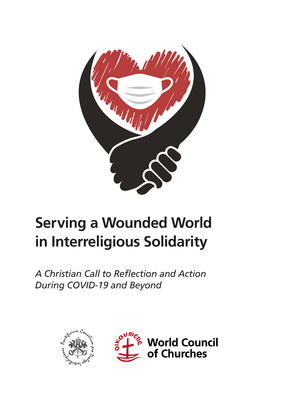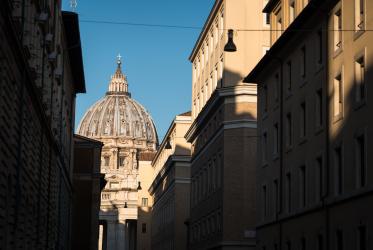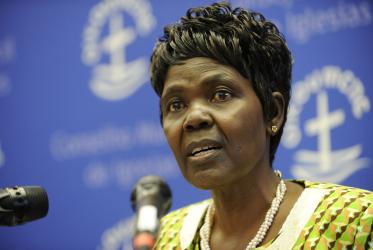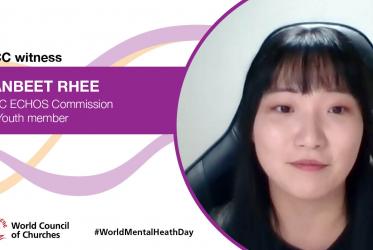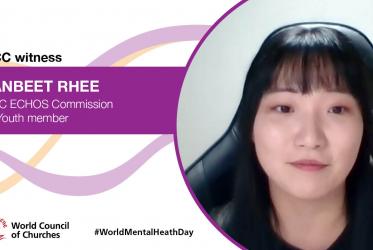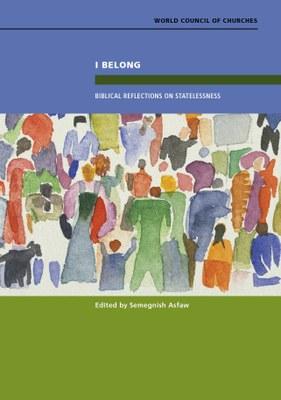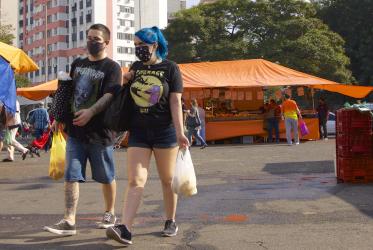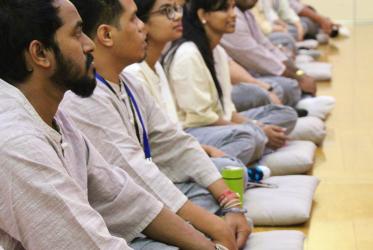Displaying 221 - 240 of 832
Serving a Wounded World in Interreligious Solidarity
A Christian Call to Reflection and Action During COVID-19 and Beyond
25 October 2020
On World Mental Health Day, “expect your colorful life”
12 October 2020
On World Mental Health Day, “expect your colorful life”
12 October 2020
I Belong: Biblical Reflections on Statelessness
Biblical Reflections on Statelessness
12 October 2020
WCC moderator to lead plenary at upcoming G20 Interfaith Forum
08 October 2020
New student body at Bossey Ecumenical Institute “a source of joy”
14 September 2020
At Bossey, ’I could feel the belongingness’
17 June 2020

